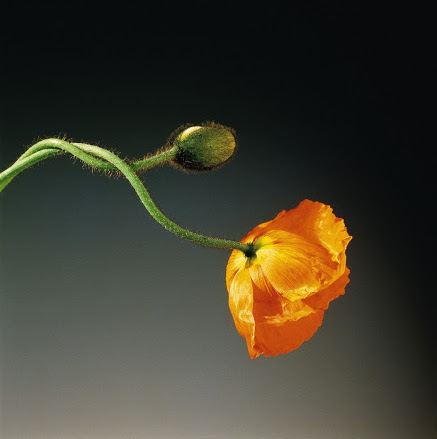Day Thirty One — 16 March
Hear our voice, O Lord, according to your faithful love.
Lectionary readings (Click the links to see the readings):
Robert Mapplethorpe. Poppy 1988. Being liberated from destructive division … continued. God's realm is like this, says Jesus. It is a huge feast. And all are invited. The only issue is how we respond, whether we are prepared to be humble enough to share, whether we are willing to be changed forever by sitting at God's table as equals—rather than as rich and poor, Jew and non-Jew, male and female, gay and straight, taxed and taxing. But at the moment of real crisis, his impending death at the hands of those who saw God's presence in him as the ultimate threat to their parochial power, Jesus did something even more shocking. In talking to his friends, he spoke of his body as food, and he said that that as 'the Body', those who feed on Jesus, they (and we) are called upon to be consumed by, and consuming of, the divine love that becomes bread and flesh for us—is made available in the material. The immediate response was confusion (John 6.51-58). Is this man mad? How can a piece of bread be confused with flesh and how can we possibly eat the flesh of Jesus? According to St John, Jesus is exasperated. How can these people be so dumb? In speaking of himself as bread, Jesus is saying that the way, the life and the truth that he embodies (enfleshes) is the very substance of life—a kind of life that cannot perish and cannot be limited, because it is sustained by God not mere molecules. That is, the bread that Jesus is, that Jesus gives us and that Jesus invites us to be, is unlimited. It is a never-ending feast, and it cannot be the case that in consuming this bread we take food out of the mouths of others. The bread of life is like the manna the wandering Hebrews found in the desert. There is enough for all and it goes on multiplying, so long as we do not try to restrict or hoard it. This is the way we are to live in a world where, as Tolstoy put it, "food for myself alone is a material issue; food for my neighbours is a spiritual issue." That is, bread is spiritual. That doesn't mean it is 'non-material', it means it is for sharing and developing life (which is precisely what the word ‘spirit' means). So when Jesus gives himself to us, inviting us to be one body with him (to consume him and to be consumed), it is life feeding on life, life generating life. This is the opposite of parasitism. The more we eat the more there is. The more there is the more we share. The more we share, the more people eat and the more there is to eat. And so on. This isn't 'religion' or 'superstition', it is a new way of living in the one world we all share. It is God's economy of plenty, and it works in almost the exact opposite way to conventional economics—because its currency is grace and friendship, not money and stock exchanges. [Continues tomorrow …] Simon Barrow. "Being Consumed Again by Love," in Fear or Freedom: Why a Warring Church Must Change. (London: Ekklesia, 2008), pp. 117-123. Donald Cashmore. The Lark in the Clear Air. Mogens Dahl Chamber at the Church of Holmen, Denmark.
|
May God our Redeemer show us compassion and love. Amen.
